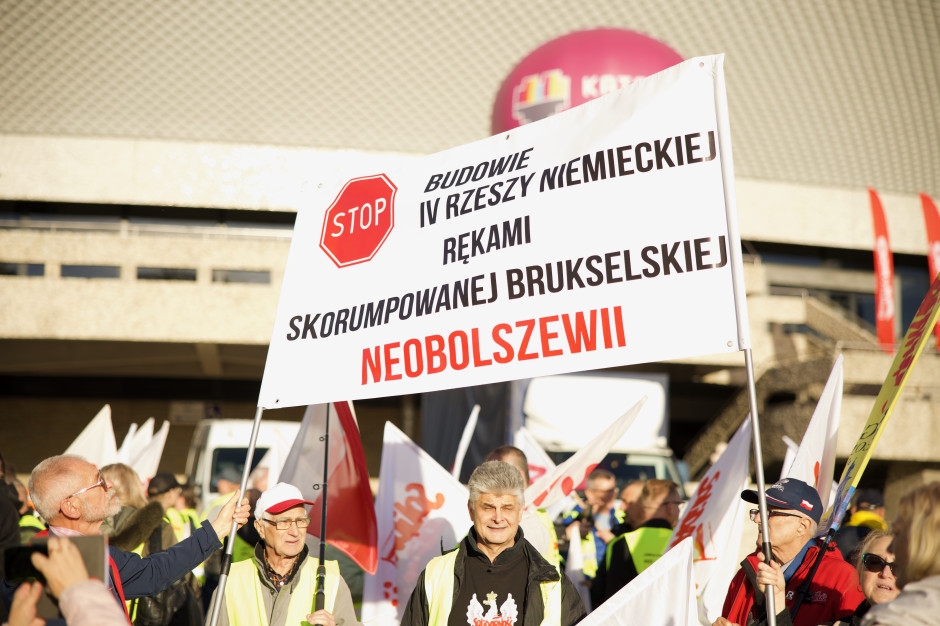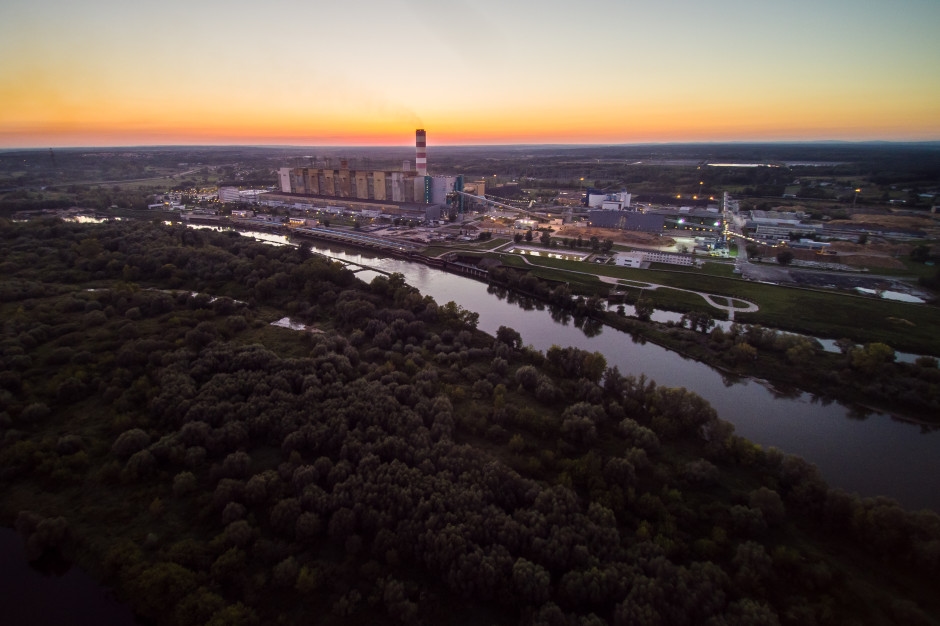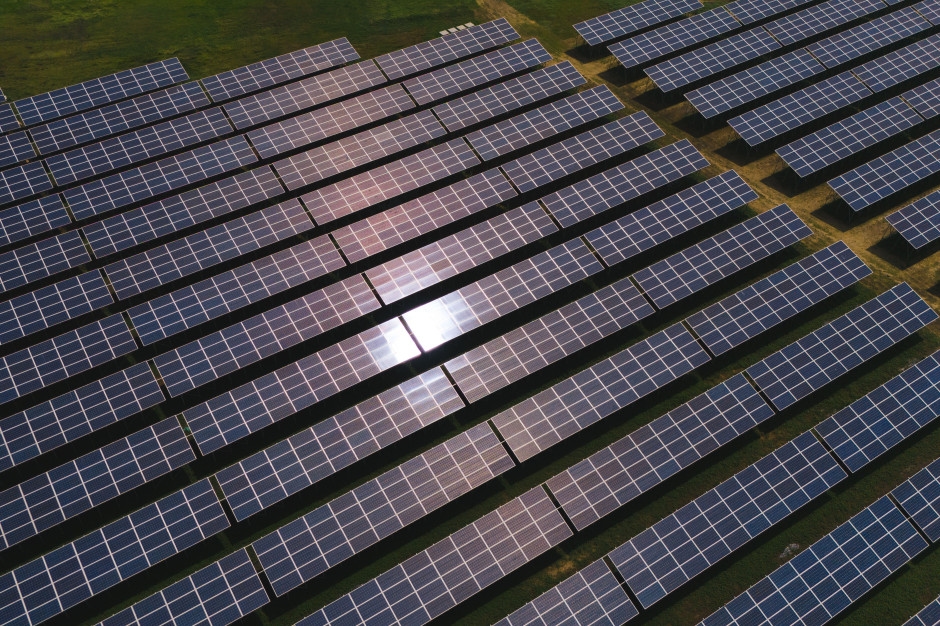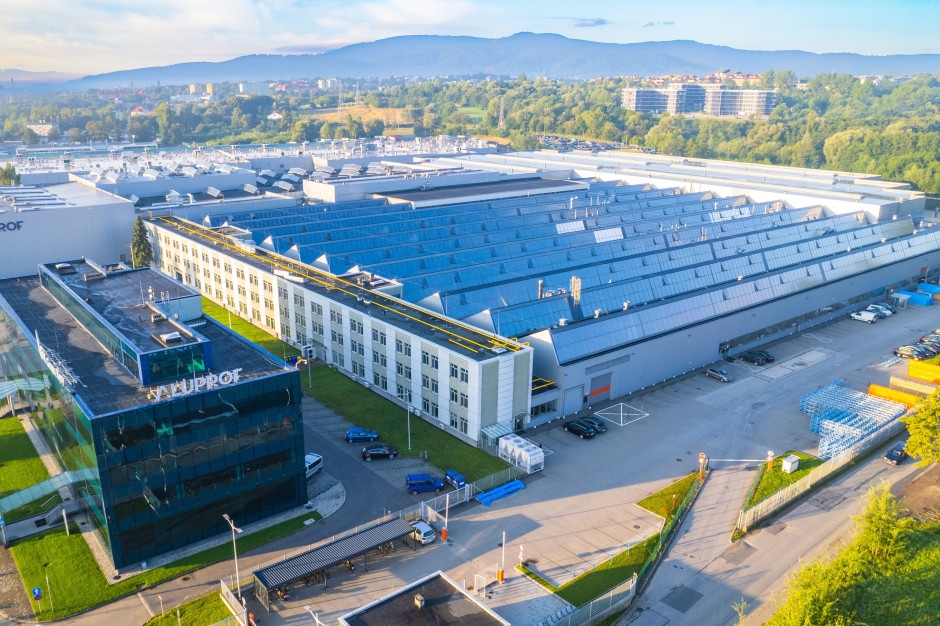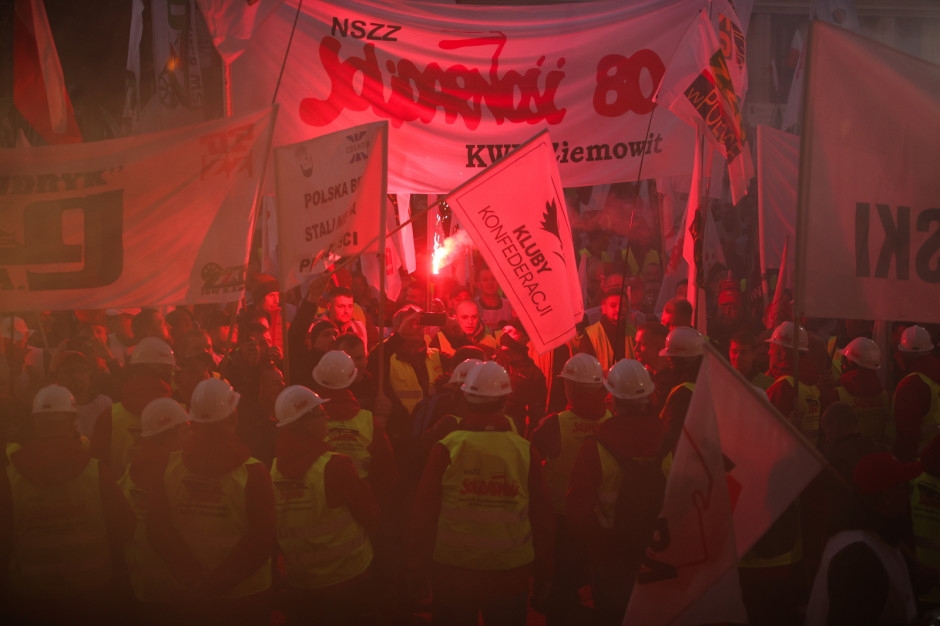"Stay away from miners' wages." Unions are not ruling out further protests.
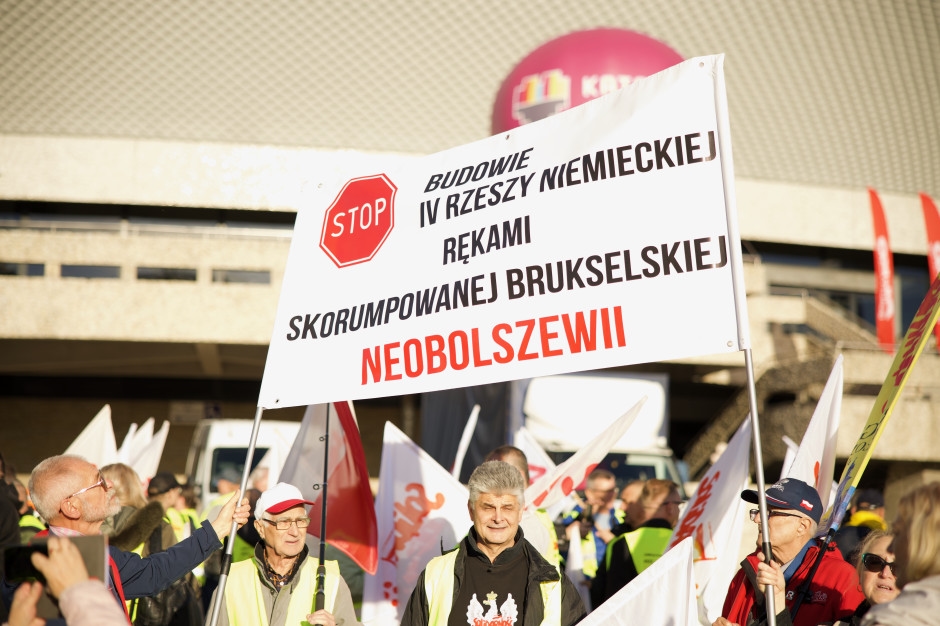
- Sirens, whistles, and union chants resounded again in Katowice. Thousands of marchers marched through the city streets, demanding concrete action from the government regarding the future of Polish industry.
- According to calculations by the chairman of August '80, 10.7 billion PLN will be needed for mining restructuring in 2026, while the budget only allotted 5 billion PLN. The difference could paralyze the entire process.
- According to Bogusław Ziętek, the key to saving the mining industry is, among other things, the return of the solidarity contribution of PLN 1.6 billion to Jastrzębska Spółka Węglowa and the establishment of a coke and steel company based on JSW and the steel assets owned by Węglokoks.
During the march, trade union representatives presented a package of demands concerning the steel, mining, and energy-intensive industries. The demands included abandoning the ETS system and ETS 2, protecting the domestic steel industry from cheap steel imports from the East, and securing funds for mining restructuring.
August '80 leader Bogusław Ziętek announced that if there is no goodwill from those in power, there will be further protests. It is possible that one will take place in Warsaw.
"Our energy system is dying loudly""This is the kind of country we live in. Our sovereignty is being destroyed. Our energy sector is in worse shape than Ukraine's, which is bombarded daily by Russia. They don't need to bombard us. It's enough that we have this kind of government. In just two years, there will be no coal-fired units left: the ones that are still saving our system today. In five, or seven at the latest, there will be no mine or Bełchatów power plant, which provides 22% of our energy. And they dream that by 2035 there will be no mines in Poland, neither mining thermal coal nor coking coal," Ziętek said.
"Our energy system is dying loudly. I want to say this very brutally: there will be no nuclear power plant in Poland after 2045. It's unclear if there will be one at all, but if there is, it won't be before then. So if we cash out Bełchatów and all the mines by 2036, and that's the plan, where will we get our energy from? We will be the only country where energy security depends on the most expensive, least stable energy: offshore," he added.
"Stay away from miners' wages"As Dominik Kolorz, chairman of the Silesian-Dąbrowa Solidarity trade union, stated in his speech, the demonstration showed that when there's a problem in Silesia, union colors are irrelevant. "We can unite and be together. Only together can we defend Silesia, defend industry, steel mills, coking plants, mines, and the automotive industry. Let all of Poland see, let the government see, that we can't fool around with Silesia," he exclaimed.
He argued that unions and demonstrators today are "saving Silesia." He explained that one of the demonstration's main goals is to oppose the Green Deal . He diagnosed that all governments since 2007 have been responsible for bringing the Polish steel, mining, energy, arms, and automotive industries to their current "tragic situation."
"You still have a chance to reverse this. Those in power now have a chance to reverse this," Kolorz said, referring to Prime Minister Donald Tusk's recent declaration that there will be a thorough review of the Green Deal policy. "Today, by submitting a petition to Prime Minister Tusk, we demand, above all, a thorough review of the emissions pricing system . Because ETS fees are ruining us, causing us horrendously high energy prices," he said.
He argued that if energy produced from lignite or hard coal were taxed the same way in Europe as any other, it would be among the cheapest in Europe and Poland. He argued that the reason why expensive wind energy is being pushed forward in Poland is because of the money behind the industry. Turning again to the Prime Minister, he urged him to use legal means to block steel imports.
Kolorz also mentioned the lack of implementation of the social contract for mining workers , which included elements of the transformation of the Silesian Voivodeship, and the assumptions of the draft amendment to the Mining Act, thanks to which workers are to benefit from social protection, and whose financing he considered insufficient.
Referring to the situation of Jastrzębska Spółka Węglowa (Jastrzębie Coal Company), the head of the Silesian-Dąbrowa Solidarity trade union addressed the new JSW management board and the Minister of State Assets. "You will no longer reach for miners' money like you did 10 years ago. You will not. We simply will not allow you to do so. Stay away from miners' wages," he exclaimed.
Mentioning the situation in other industries, such as the automotive industry, which is experiencing downtime, Kolorz said it is starting to "resemble the situation from 25 years ago." "We absolutely will not allow something like what happened 25 years ago in Silesia, and that's why we're here," he said.
"(...) We will no longer allow Silesian cities to become depopulated. (...) This is not how a just transformation should look like. (...) You cannot waste the money allocated for this transformation. (...) You must maintain Polish industry," the trade unionist appealed.
He also acknowledged that Poland is often governed by "people who lie: they sign, but don't implement." "That's how it's been for the past 10 years. That won't be the case now," he declared.
"Without protests we will achieve little"According to trade unionists , the current policy of the European Union and the lack of response from the government are leading to the collapse of key industries .
- Today, the European Union is to vote on another tightening of climate targets for 2040. If this is the direction it is supposed to go, we won't achieve much without protests - emphasizes Bogusław Ziętek, chairman of August '80, in an interview with WNP.
Industry representatives raised the alarm that the growing import of cheap steel from countries outside the European Union makes Polish plants unable to compete on price.
Trade unionists are demanding a ban on steel imports from the East and cheaper energy tariffs for energy-intensive industries.
"State policy towards energy-intensive industries should guarantee stable and low energy prices. Without this, the Polish steel industry will not survive ," emphasizes Bogusław Ziętek, chairman of August '80.
According to trade unionists, the energy sector is making money, while the mining industry is losing money.The head of August '80 also criticized the country's current energy policy. He believes the system supports large energy companies, while the mining industry bears the greatest costs of the transformation.
"The energy sector buys coal from us at ridiculously low prices. The budget subsidizes this business, and the profits go to the corporations, not to working people," he says.
According to his calculations, PLN 10.7 billion will be needed for mining restructuring in 2026, while the budget only allots PLN 5 billion. He estimates that the difference could paralyze the entire process.
Crisis in the automotive and coke industriesAnother key topic was the problems of the hard coal and coking coal mining industry. According to Bogusław Ziętek, the key to saving it is the return of the PLN 1.6 billion solidarity contribution to Jastrzębska Spółka Węglowa and the establishment of a coke and steelmaking concern based on JSW and the steelmaking assets held by Węglokoks.
The union representative also noted that funding for protective programs and severance pay for miners remains lacking . Only half of the required funds have been budgeted. Meanwhile, the Bobrek, Bielszowice, and Wujek mines are scheduled to close in 2026, potentially putting hundreds of people out of work.
"Funds must be allocated accordingly. Currently, there won't be enough funds for all these purposes, namely Jastrzębska Spółka Węglowa, PGG, and Węglokoks, until 2026. Jastrzębska Spółka Węglowa alone needed over a billion zlotys for this purpose," he adds.
During the march, it was repeatedly emphasized that the problems do not end with the mining sector. The automotive, transportation, and coking industries are also facing difficult situations.
Rising energy costs, high emission fees and increasingly restrictive EU standards are causing many plants to limit production or suspend investments.
wnp.pl

